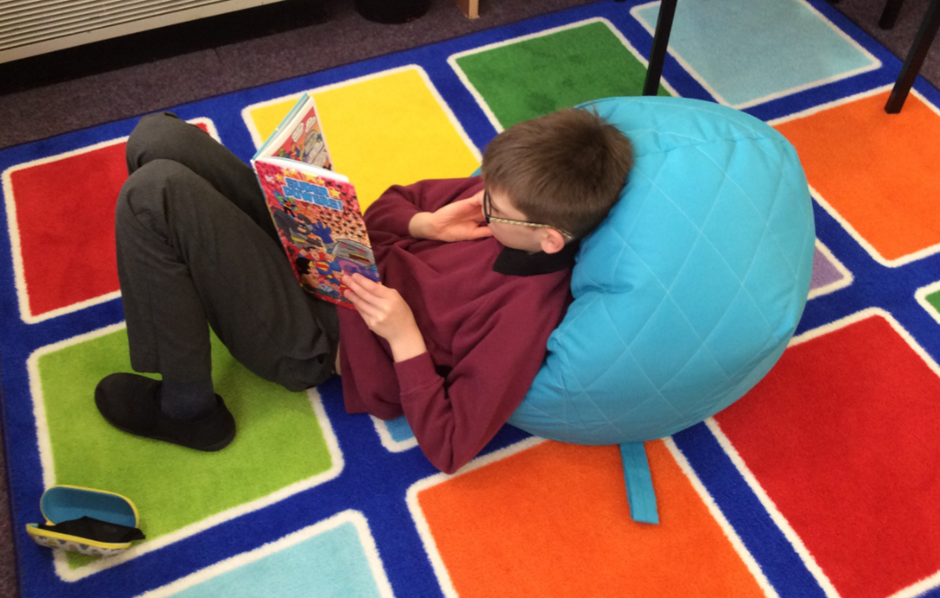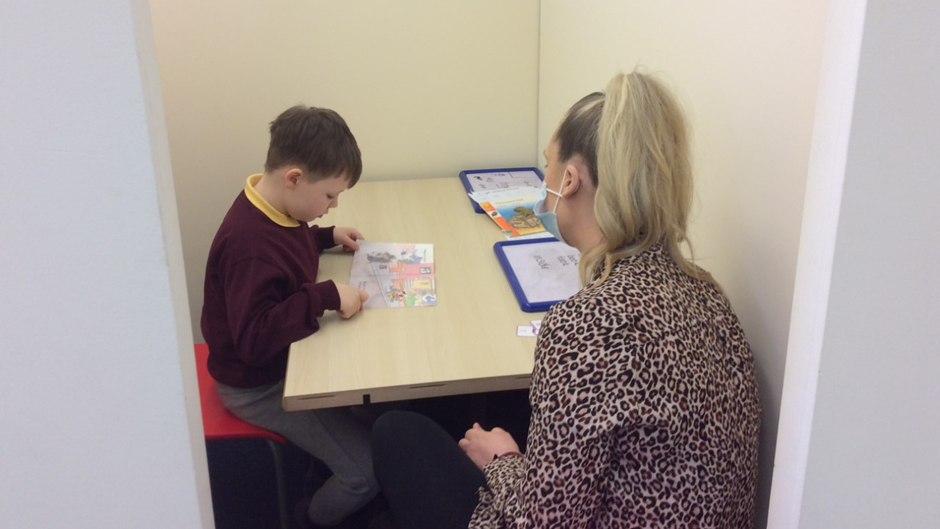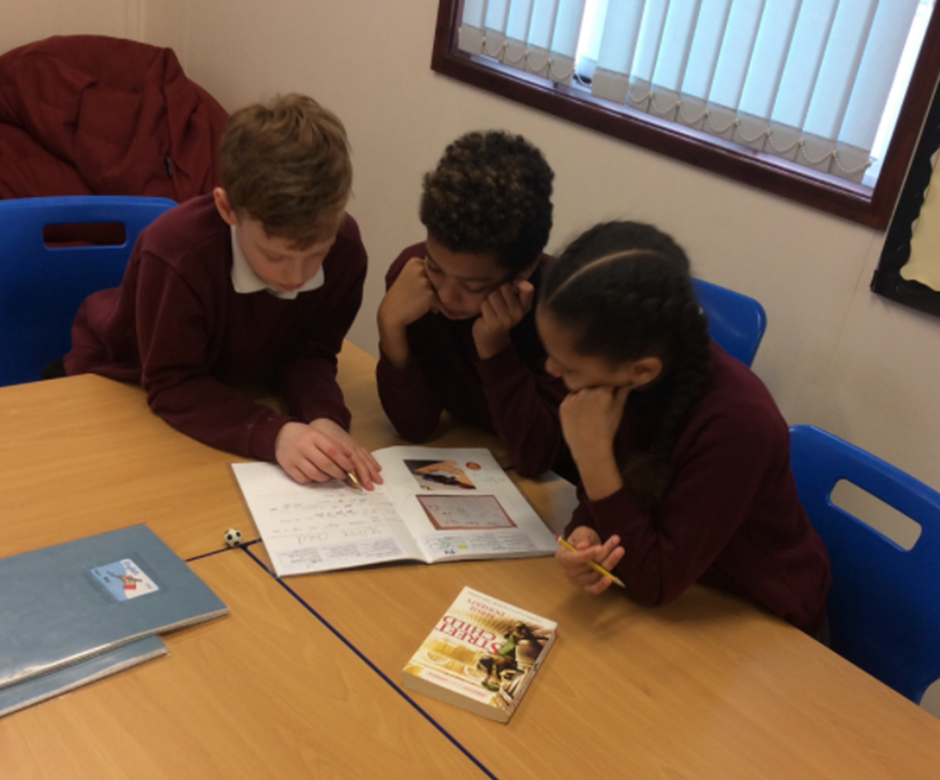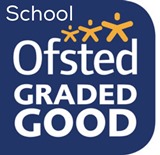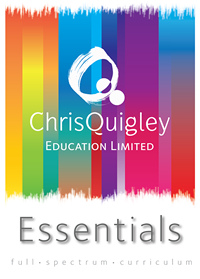READING
INTENT
Reading is at the heart of everything we do at Larwood School and forms the core of our curriculum. We intend to foster a love of reading for all and aim to equip our children with the necessary skills to read fluently, and with confidence, both for pleasure and for purpose. Many of our pupils come to us unable to read or reading significantly below age related expectations. We intend to encourage all pupils to read widely across both fiction and non-fiction in order to: develop their knowledge and understanding of both themselves and the ever-changing world in which they live; develop an appreciation and love of reading; to gain knowledge across the curriculum and to develop their comprehension skills.
IMPLEMENTATION
- Guided Reading Sessions
Children receive a weekly taught fluency session, where teachers address and teach the key skills to being a fluent reader. We understand that fluency is an important step between phonics and the skills of reading comprehension and needs to be explicitly taught. We focus these sessions on providing our children on being able to use the three elements of fluency: automaticity, accuracy, and prosody (i.e., fluent readers read quickly, easily and with the patterns and rhythm of spoken language). Teachers and teaching assistants assess children’s reading fluency regularly and extra support is giving to those children identified as struggling with these skills.
- Reading Books - The school uses a variety of reading schemes to provide a wide variety of appropriate, quality texts for children. These have been built up over the years and are updated to ensure our children have a rich and diverse reading experience that covers all reading genres. The schemes incorporated into our reading provision include: We use oxford reading tree and have 3 programmes of decodable books: Raintree, Project X and Code and some novels, specifically chosen and banded by teachers. All books are ‘Book Banded’ in order to ensure progression and challenge for all children.
- Home Reading - All children are expected to take home a ‘banded reading book’ and read at least three times a week. Reading is to be recorded in the online reading diary which is shared as a link between home and the class team. All class teams are expected to write in children’s reading diaries each time the child reads.
Some of our children require ‘early years’ approach to reading, in which case, each child is sent home with a fully decodable book containing the letter sounds and tricky words they are currently learning in their phonics sessions. The intention is that our children will be able to read books more confidently, using the phonemes they have learnt; this will also help parents to be more informed about the phonemes their child can recognise and use. Therefore, these books are selected by a trained teacher or teaching assistant to ensure books are pitched appropriately for each child.
Once a child has reached the ‘turquoise band’, when they are moving onto ‘Phase 6’, they will be able to select their own reading books as they will be able to fully decode and are ready to apply these skills to more challenging texts.
Children in Year 2 and any children in KS2, who have not passed their phonics screening test, will take home a fully decodable reading book.
In Key Stage 2, children can select their own reading books; the reading bands they are selecting from are monitored regularly by the class teacher, using assessment and through listening to children read.
- Individual Reading- 1:1 Daily Reading
- All children will have the opportunity to read to a trained adult at least once a day through the essentials time. Children requiring additional support with their reading, will have extra reading sessions with an adult or will be in a reading intervention led by a teacher or teaching assistant to address the required skills for them to make appropriate progress.
- Class Readers- As a school, we are passionate about helping children to develop a love for reading. We believe this love for reading is a steppingstone to becoming an enthusiastic learner and a confident reader, writer and speaker. We also know how important it is to have good ‘role models’ in reading and that a great deal of enjoyment can come from listening to stories as well as learning. For this reason, we ensure our teachers read to our children daily.
- Library - We are fortunate to have our own library and the children have the opportunity once a week to choose a book to take home to read for pleasure. The library is regularly updated with new books to ensure that the choice remains current, relevant and in condition.
- Reading rich environments- We strive to create a stimulating and exciting reading environment that encourages a love for reading. Every classroom has a reading display which celebrates reading in the classroom and children have access to a reading area in which they can choose and borrow engaging and high-quality texts.
- Reading culture - Throughout the year, we lead several initiatives that help to build up a stimulating and exciting reading culture throughout the school. These include: Half term reading challenges – supported via trained school staff over Teams, Reading to our school dog, Buddy, author visits and world book day.
PHONICS
Phonics skills are actively taught daily throughout every year group as part of our essentials program. We use the phonics scheme based on use the 'Essential Letters and Sounds' a DfE validated systematic synthetic phonics programme. The scheme ensures that children are exposed to grapheme and phoneme correspondences in a systematic and progressive way. Children learn together through practice and application, initially learning to discriminate between different sounds (phonemes) and then increasingly being able to decide which letter combination to use to represent the sound, given the word and the position of the sound.
In Year 1 in the summer term, children are required by the DfE to undertake a phonics screening test. This is completed 1-to-1 with their teacher and is a familiar activity for the children. If children do not meet the required standard, they would be required to re-take in Class 2 (statutory process from DfE).
Please see the Policy for Teaching of Phonics at Larwood School for more information- this is attached as a document below.
IMPACT
Children leave Larwood with the ability to read widely and often, with fluency and comprehension appropriate to their age but most importantly, with the desire to read for pleasure. Children are able to use their learnt skills to apply their understanding when reading and engaging with a range of texts. Children enjoy reading, feel safe when reading, feel creative and inspired by the books, characters, and authors they encounter throughout their time at primary school. As a result of high-quality teaching and exposure to a diverse range of reading experiences, children achieve well; this is reflected in results from internal tests that meet government expectations and from listening to their reading and talking to children. As one Ofsted inspector was told by a pupil during the 2019 inspection, echoing the views of many, explained, ‘I didn’t used to be able to read, but now I can.’
